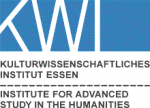These are the slides for my talk in the invited lecture series, The Specter of Ignorance, at the Korbel School of Denver University May 2012.
It’s not the What but the How that counts
These are slides from a lecture sponsored by The Philanthropic Enterprise given in New York October 2012.
Good Intentions: The Dilemma of Outside-in Help for Inside-out Change
This article in the Non-Profit Quarterly applies some of the key lessons from development philosphy (in my Helping book) to the community development work of foundations.
Zagreb Lecture Slides
These are the slides from a lecture given at the Heinrich Boll Foundation in Zagreb in September 2012.
Workplace: Forgotten Topic in Democratic Theory?
This paper explores the theme of workplace democracy as promoting human development by looking particularly at John Stuart Mill and John Dewey.
Whither Self-Management?
This is the published version of my keynote speech at the 2004 conference of the International Association for the Economics of Participation in Halifax Canada.
Towards a Theory of Unhelpful Help
These are the slides of a 2009 lecture at the Institute for Advanced Study in the Humanities in Frankfurt Germany.
Die Gazette article (in German)
This is a translation into German, with very nice presentation and graphics, of my blog entry on Wall Street Capitalism.





